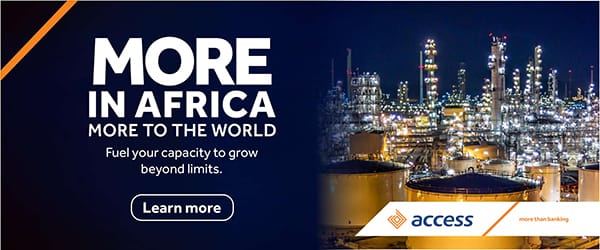Fate of Nigeria’s Insurance Recapitalisation Uncertain – Afrinvest Fate of Nigeria’s Insurance Recapitalisation Uncertain – Afrinvest
Fate of Nigeria’s Insurance Recapitalisation Uncertain – Afrinvest
Uncertainties threaten Nigeria’s insurance companies’ recapitalisation as the first phase of the exercise approaches. There are indications that operators’ willingness and readiness for the exercise remain weak amidst legal tussles and interference.The pandemic-induced stress had impacted insurance companies’ performance. This was followed by national unrest requiring an end to the operation of Nigerian police’ Special Anti-robbery Squad (SARS) operations.In a new report, Afrinvest, a leading investment banking firm, advocates that the recapitalisation of the industry remains crucial to replicate growth similar to the banking sector experience.Regulator had On May 20, 2019 asked Insurers, Reinsurers companies to increase their paid up share capital with a request they submit their recapitalization plans by August 20, 2019.The regulator had target June, 2020 as recapitalisation deadline. However, pandemic-induced pressure impacted operators’ abilities to meet the deadline due to the pandemic, in particular.NAICOM
The new capital base requires Life Insurers to increase paid up share capital four folds, from N2 billion to N8 billion. General Insurance business class operators are expe3cted to raise paid up share capital to N10 billion from N3 billion.Likewise, NAICOM demands N18 billion and N20 billion as new capital base for composite and re-insurance companies from N5 billion and N10 billion respectively.It claims that large proportion of local risks are presently ceded outside due to Insurers low retention capacity – which include capital base, risk size, solvency margin portfolio mix and underwriting experience.NAICOM had suspended the industry’s recapitalisation exercise for the second time in three years following a court order.History of the recapitalisation in the industry shows that operators were successfully recapitalised between 2005 and 2007. Another attempt was made in 2011/2012 to introduce a Risk Based Capital (RBC) and Supervision (RBS) using Basel II model.However, NAICOM said in a report that while research was being made on the RBS/RBC, an idea of home grown RBC approach was born.Hence, Tiered based minimum solvency capital was introduced in the third quarter of 2018 by the Commission. However, it was resisted by the operators, and was cancelled and withdrawn.This led to a new paid up share capital which was introduced in May, 2019.In December 2020, Nigerian lawmakers in the House of Representatives directed the regulator to suspend the phased recapitalisation program.House of Reps cited the economic hardship in the country as a result of the pandemic and the need for increased liquidity to boost growth.Afrinvest recalled the lawmakers alluded to the #ENDSARS protest by the Nigerian youths and the negative impact that the destruction of several properties has inflicted on the insurers.However, the Lawmakers’ suspension of the exercise was expected to last for six months from January – June 2021.“This action creates a Déjà vu scenario relatable to 2018 when a class action by insurance companies’ shareholders resulted in NAICOM canceling a proposed Tier-based recapitalisation.“We advocate that the recapitalisation of the industry remains crucial to replicate growth similar to the banking sector experience”, Afrinvest said.Coming from the stunted growth recorded since it contracted 2.9% in 2019, the Nigerian insurance sector recorded a negative 15.3% growth in 2020 according to the National Bureau of Statistics.In terms of global relevance, Afrinvest stated that the Nigerian insurance sector lagged significantly with a total contribution to global premiums at 0.03% as it ranks 63rd of 88 countries profiled by Sigma Research in 2019.“Compared with Sub-Saharan peers, the narrative is similar, the sector’s insurance penetration (GPW/GDP) remains poor at 0.3% with South Africa (13.4%), Morocco (3.9%), and Kenya (2.3%) advancing in reach.“Similarly, the sector grapples with low insurance density (GPW per capita) of $8.0 compared with South Africa ($803.0), Morocco ($127.0), and Kenya ($43.0)”, the firm narrated.Afrinvest recognised that the pandemic fueled lockdowns and resulted in lower premiums from some insurance policies as well as refunds from some auto insurers and escalation of other insured risks, on the bright side, it necessitated the need for fast-paced adoption of technology and digital channels in the industry.The Nigeria Insurers’ Association (NIA) reported a total of 1,661 protest-induced claims as a result of the #EndSars protests, of which 143 substantiated claims worth ₦105.0 million have been settled.“We believe the settlement of claims is key to emphasizing the purpose of insurance among the Nigerian populace and encouraging uptake of insurance policies although this would imply higher costs and depressed profitability for insurers”, Afrinvest stated.Analysts said they continue to advocate for increased mergers and acquisitions in the sector to consolidate the influence of companies, deepen insurance penetration and enhance the retention of heavy-ticket risks in Nigeria.“We also advise increased collaboration with telecommunication companies and banks as well as micro insurance to capture value at the retail end of the population”, the investment firm added.Analysts at Afrinvest said they have seen some banks (Guaranty, Sterling, and Access Bank) applying for the Holding Company (HoldCo) licence and upon the expected resumption of recapitalisation program, anticipate that these banks would consider insurance subsidiaries.Already, Access Bank, Ecobank, First Bank, and Guaranty Trust Bank have Bancassurance relationships and equity stakes in insurance companies while Zenith Bank, Unity Bank, and Stanbic IBTC Bank have fully owned insurance subsidiaries.“We expect full HoldCo structure frenzy to boost banks’ investments in the insurance sector and while this may stifle competition for the industry, it would boost growth and insurance penetration”, analysts said.Afrinvest explained further that in line with data from companies sampled for the sector performance, the Nigerian Insurance sector reported 18.7% year on year growth in premiums to ₦254.0 billion in 2020 due to improvement across life and non-life segments.However, the sector’s insurance penetration measure by gross premium written as a percentage of gross domestic product (GPW/GDP) continues to lag Sub-Saharan Africa (SSA) peers at 0.3% with South Africa (13.4%), Morocco (3.9%) and Kenya (2.3%) advancing in reach.Similarly, the sector grapples with low insurance density, measure by GPW per capita of $8.0 compared with South Africa ($803.0), Morocco ($127.0), and Kenya ($43.0).Looking across Africa, analysts at Afrinvest said they observe poor pricing of Nigerian insurers in the market with price-to-book ratio of 0.63x compared with South Africa (2.45x), Mauritius (1.21x), Egypt (1.65x) and Kenya (0.67x). It added that the poor pricing indicates investor apathy towards the listed insurers, quite evident in the stock prices”.“Although the fate of the recapitalisation is quite uncertain, we believe the program holds gains for the insurers and the country at large and if well conducted would feature a sector with few strong players”, Afrinvest said.The firm believes that increased banks’ investment in the sector coupled with partnerships with Telecommunication industry players would also boost performance.Fate of Nigeria’s Insurance Recapitalisation Uncertain – Afrinvest
Home
Business Fate of Nigeria’s Insurance Recapitalisation Uncertain – Afrinvest |Blissful Affairs Online













